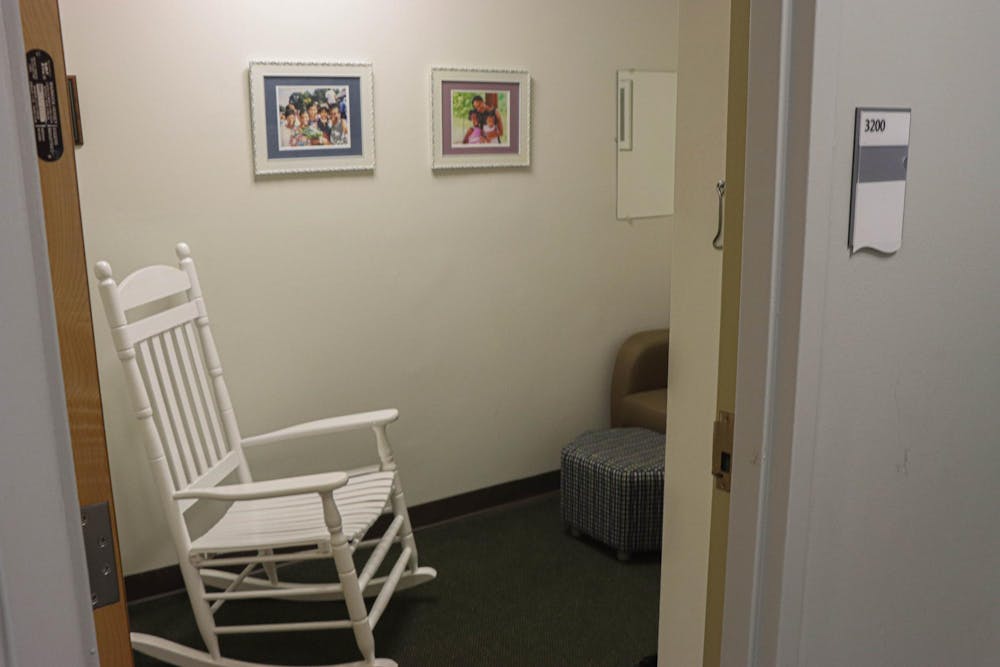Currently, University students, faculty and visitors have access to over 30 lactation rooms on UNC’s campus and owned property.
Lactation rooms, private and safe spaces dedicated to nursing and pumping, are separate from public restrooms. On campus locations include the Frank Porter Graham Student Union, Gillings School of Global Public Health and the School of Social Work.
In addition to adequate lighting and seating, UNC’s lactation policy also requires lactation rooms to have a door that can be secured and electrical outlets for pumping equipment.
Some buildings, like the Gillings School of Global Public Health, provide other amenities, like lockers for nursing people or a refrigerator to store milk in.
To use lactation spaces, people can request access by contacting the Equal Opportunity and Compliance Office's Accommodations team at accommodations@unc.edu with their name and PID. Different facilities and departments may also have their own point of contact and process for gaining permission.
Because not every building on campus has a lactation room, many students, faculty and guests rely on resources like the UNC's Campus Lactation Guide to find available spaces and read more about University policies.
Tiffany Bailey, director of equal opportunity and Americans with Disabilities Act coordinator with the EOC Office, said in an email statement that if additional spaces are needed, the office will work with people to identify appropriate spaces.
Whether juggling the demands of being a nursing parent in college or simply visiting campus, Samuel Deal, facility planner at the School of Social Work said that lactation rooms are especially essential in higher education.




